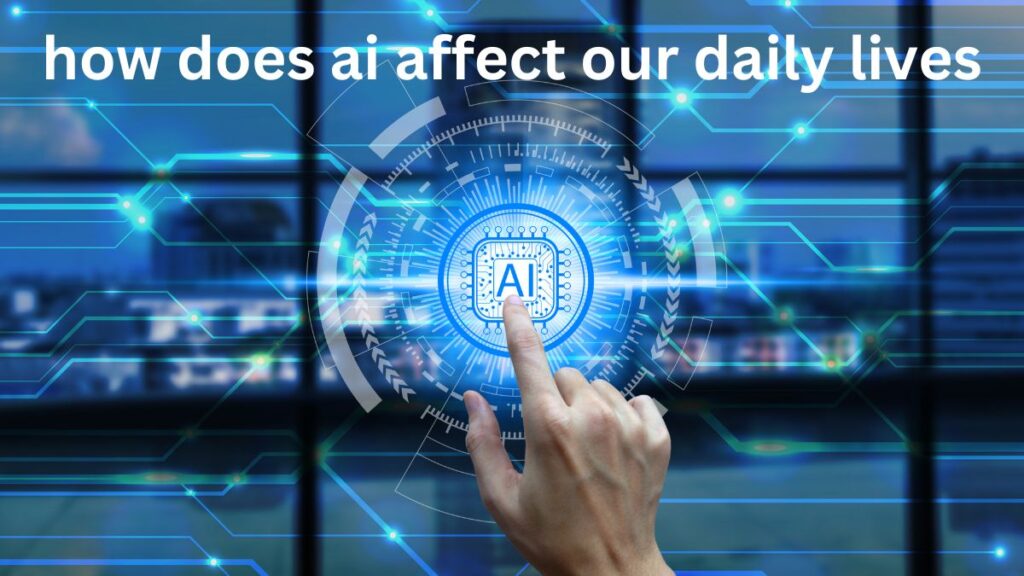Artificial intelligence (AI) is not a science-fiction concept anymore. It is already a part of our daily routines, whether we realize it or not. From the moment we get up until we go to bed, artificial intelligence (AI) greatly helps to make our lives easier, more efficient, and even more enjoyable. AI has the potential to revolutionize parenting by streamlining daily chores, assisting with time management, and offering tailored solutions for family need. So, what particular impacts does AI have on our daily lives?
Let’s go into this intriguing subject and examine how AI affects our daily lives as parents.
You may want to read: Why AI Should Not Be Used in Education
- 1. AI in Communication and Social Media for Parents
- 2. AI in Personalization and Convenience for Parents
- 3. AI in Healthcare: A Game Changer
- 4. AI and Smart Homes: Convenience at Your Fingertips
- 5. AI in Transportation: The Future of Commuting
- 6.AI in Education: Personalized Learning for Parents
- 7. The Negative Side of AI
- Does AI Have a Positive or Negative Impact on Society?
- Conclusion
- FAQs About how does ai affect our daily lives
1. AI in Communication and Social Media for Parents
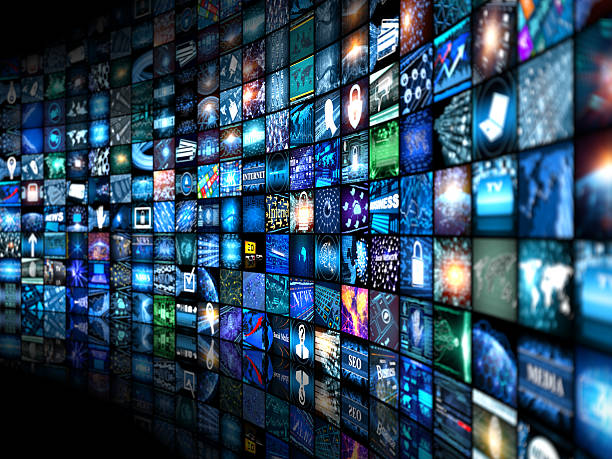
All of us use our computers and phones a lot. AI is improving our experiences in the background when we converse with friends and post on social media. Social media networks are among the most prevalent ways artificial intelligence impacts our lives. There are more than simply random posts in your feed when you scroll through it. AI shows you material based on your past interactions, interests, and behavior using algorithms.
AI will suggest more posts about cooking or fitness to parents, for instance, if you often enjoy those kinds of posts. We interact with these platforms more frequently because they employ AI to keep us interested and offer tailored experiences.
AI-powered chatbots are also enhancing communication. These days, a lot of companies employ chatbots to handle customer care, providing prompt answers to your questions without requiring human involvement. These bots comprehend and reply to your inquiries using natural language processing, which speeds up and improves communication.
2. AI in Personalization and Convenience for Parents
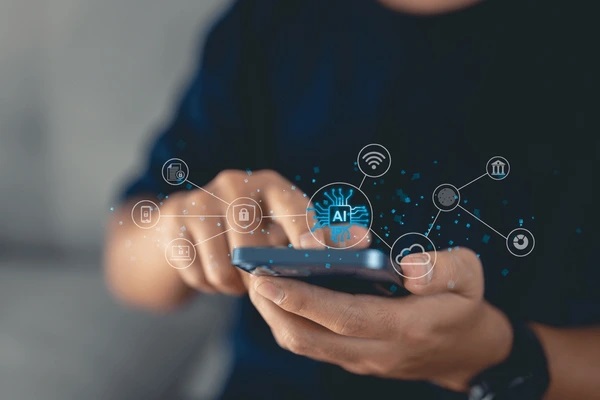
Imagine your favorite online store opening and making recommendations for items you would love to purchase right away. AI is at work there! AI makes the most appropriate product and service recommendations based on your browsing history, preferences, and even previous purchases.
AI is used, for instance, by streaming services for parents like Netflix and YouTube to recommend episodes and movies you might enjoy based on your past selections. By saving us the time we would otherwise spend looking for material, this improves our quality of life. The same is true for purchasing, where AI makes personalized suggestions based on your preferences.
AI can also assist with more individualized jobs. AI is used by virtual assistants such as Google Assistant, Alexa, and Siri to aid you in managing your day. From setting reminders to checking the weather, these tools provide convenience that can simplify your life.
3. AI in Healthcare: A Game Changer

Our approach to healthcare is likewise evolving as a result of the AI revolution. Smartwatches that check blood pressure, heart rate, and even sleep patterns are examples of wearable technology that keeps an eye on our health in real time. These gadgets analyze data using AI algorithms to provide us with health-related insights.
AI-powered health apps, for example, may track your fitness objectives, suggest exercise regimens, and offer tailored dietary guidance. These applications gather information from your everyday actions and modify their recommendations in response to your development.
Furthermore, by supporting physicians and other medical professionals, AI is revolutionizing healthcare. By analyzing medical data, AI systems assist physicians in reaching more precise diagnoses. Early disease detection using these instruments can improve treatment results and save lives.AI is also playing a major role in telemedicine, offering virtual consultations that make healthcare more accessible to people in remote areas.
4. AI and Smart Homes: Convenience at Your Fingertips
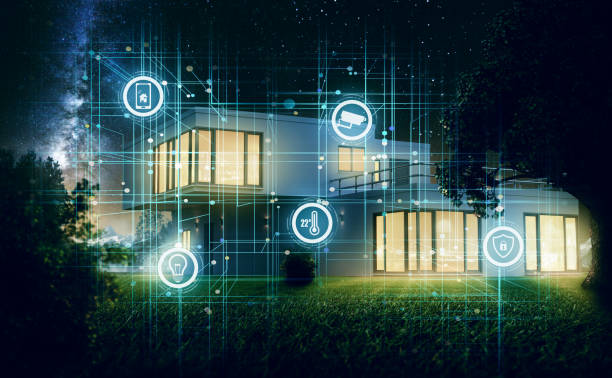
AI plays a significant role in the growing popularity of smart homes. AI powers smart devices like lights, security cameras, and thermostats. AI is used, for instance, by Nest and other smart thermostats to learn your preferred temperature and modify settings accordingly. In order to conserve energy, they can even detect when you’re not home and turn down the temperature.
Another area where AI is quite important is security systems. With the ability to identify faces and even spot odd movements, modern security cameras can send alerts straight to your phone. With AI-enabled smart locks, you can remotely unlock your door, giving your house an additional degree of ease and security.
Even smart refrigerators are now on the market, using AI to track your grocery items and help you create shopping lists based on what you’ve run out of. These innovations provide comfort, control, and energy efficiency.
5. AI in Transportation: The Future of Commuting
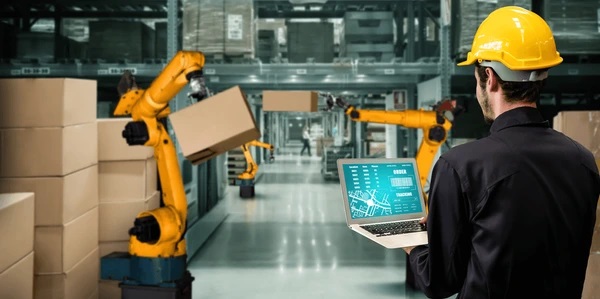
Another industry where AI is having a significant impact is transportation. AI is improving the safety and intelligence of our journeys with self-driving cars and navigation apps like Waze and Google Maps.
Navigation apps may now offer real-time traffic updates, recommend quicker routes, and even anticipate possible delays thanks to artificial intelligence. These applications continuously update their maps and increase the precision of their forecasts by utilizing machine learning techniques.
Despite their ongoing development, self-driving cars have the potential to completely transform the transportation sector. Sensors, cameras, and algorithms are used by AI in autonomous cars to operate the vehicle without human intervention. By lowering human mistake, this technology promises to make highways safer and maybe save hundreds of lives annually.
6.AI in Education: Personalized Learning for Parents
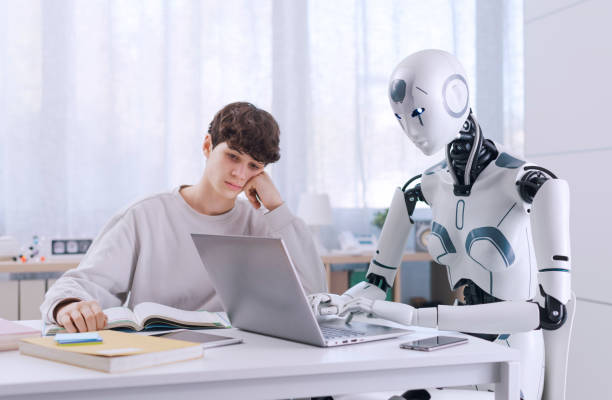
AI is also revolutionizing the realm of education. AI is giving pupils individualized educational experiences as online learning gains popularity. AI is used by platforms like Duolingo to modify lessons according to a student’s progress, making learning more personalized and interesting.
By evaluating students’ performance on assignments and tests, artificial intelligence (AI) can assist teachers in traditional classrooms in identifying kids who require additional support. After that, it might recommend tutoring sessions or other options. AI in education ensures that no student falls behind by making learning more personalized and accessible.
7. The Negative Side of AI
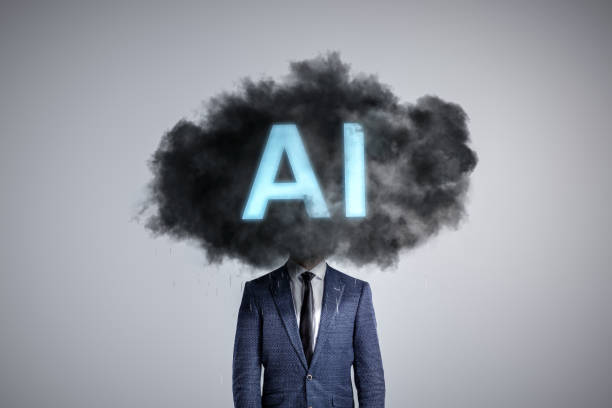
Even while AI has many advantages, some people are worried about potential drawbacks. Job displacement is one of the main concerns. There is concern that many jobs will be mechanized as AI advances, which could result in unemployment in some sectors of the economy. For instance, computerized customer service lines and supermarket self-checkout kiosks may displace human employees, leading to employment losses.
Privacy is another issue. There are concerns regarding the use and security of the vast amounts of personal data that AI systems are gathering. How much control we have over our personal data is called into question by AI’s ability to follow your choices, behaviors, and even forecast your behavior.
Does AI Have a Positive or Negative Impact on Society?
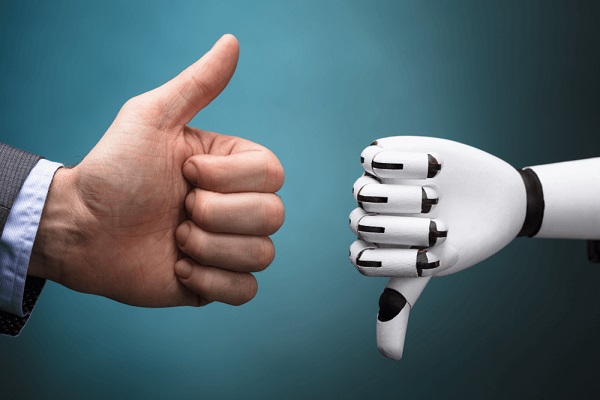
AI can affect society in both positive and negative ways. On the one hand, it results in significant improvements in convenience, education, and healthcare. Concerns over ethical ramifications, privacy, and job loss are legitimate, nevertheless. Finding a balance and using AI sensibly are crucial to maximizing its positive effects and reducing any potential negative ones.
Conclusion
As we have seen, artificial intelligence is changing how we work, live, and engage with the outside world. AI is changing the future in ways we couldn’t have predicted even a few years ago, from simplifying our everyday chores to completely transforming sectors like healthcare and education. Even though there are obstacles to overcome, AI has the potential to significantly enhance our daily lives.
Consider how does ai affect our daily lives the next time you use your phone, communicate with a chatbot, or rely on a smart device in your house.
FAQs About how does ai affect our daily lives
1: How does AI affect our daily lives positively?
AI helps streamline daily tasks, offers personalized recommendations, enhances healthcare, and improves communication. It saves time and increases efficiency in many areas of life.
2: Can AI negatively impact our daily lives?
Yes, concerns about job loss due to automation, privacy issues, and data security are some of the negative impacts. It’s important to use AI responsibly.
3: How does AI personalize my shopping experience?
AI uses your browsing history and preferences to recommend products and services that align with your interests, making shopping more tailored to your needs.
4: Is AI safe to use in healthcare?
AI in healthcare offers many benefits, such as early disease detection and personalized treatment plans. However, it’s essential to ensure data privacy and quality control in AI-powered healthcare tools.
5: Does AI have a positive or negative impact on society?
AI has both positive and negative impacts. While it brings innovation and efficiency, it also raises concerns about privacy, job displacement, and ethics.

